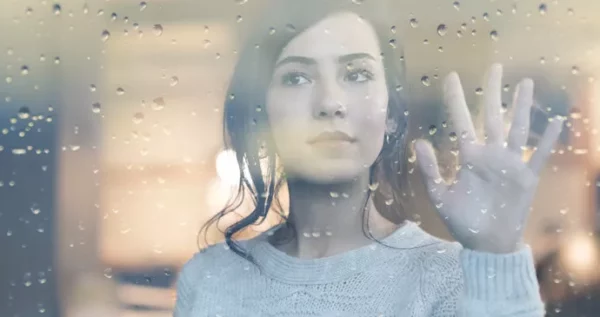
Deja vu is a well-known and quite mysterious phenomenon. Most people experience it at least twice during their lifetime, yet no one, including scientists, can precisely say where it comes from.
What is déjà vu?
To understand what deja vu means, we should turn to the French language – the phrase “déjà vu” literally means “already seen”. A person experiencing this phenomenon has a strong feeling that the current event has happened before. You may find yourself in a place you’ve never been to before, yet it feels familiar. You meet someone, and it feels like you’ve known them your whole life. You don’t understand it, but that’s exactly how it is.
Deja vu is undoubtedly one of the most intriguing memory illusions. According to a recent study, up to 97% of people have experienced deja vu at least once in their lifetime, and 67% of people even experience it regularly.
The phenomenon of deja vu belongs to a broader group of so-called paramnesias or memory disorders. The general characteristic of all these experiences is that people, places, or events are wrongly associated with the person who recalls them. Therefore, a person may assume that they have already experienced something that is actually happening to them for the first time, or vice versa: deny an event that actually occurred. The latter disorder, which is the opposite of deja vu, is also known in French as “jamais vu” (never seen).
A significant Slovak study revealed that people who experience deja vu regularly have less gray matter in their brains than those who do not experience it at all. Gray matter forms the outer layer of the brain and is responsible for several functions, such as controlling movement, memory, or emotions.
The feeling of deja vu has fascinated not only ordinary people but also scientists and artists since ancient times. Charles Dickens and Leo Tolstoy mentioned it in their works.
Where does déjà vu come from?
You may have heard the claim that déjà vu is related to our past lives, allowing us to predict what will happen. However, there is a logical explanation for this mysteriously appearing phenomenon. It is not something spooky or paranormal.
Déjà vu can be explained in the context of our memory processes. It is natural for our brains to store memories so that we can predict future events and navigate them. This memory phenomenon works on a similar principle. The experience of déjà vu can be triggered, for example, by a similar spatial layout.
The onset of déjà vu can also be caused by excessive fatigue or stress, which can affect our memory. It is presumed that it may also be related to the secretion of excessive amounts of dopamine. Evidence of this can be seen in the curious case of a 39-year-old man who experienced several déjà vu episodes per hour within a 24-hour period. The trigger was said to be flu medication that acted on the dopamine system, causing an excess of this hormone in the body. After discontinuing the medication, these experiences ended.
When we have experienced this peculiar state of mind several times, many of us wonder why we have déjà vu. Scientists are not completely united on this point. However, most of them feel that this phenomenon in itself is not a cause for concern. It is worse if it accompanies various neurological diseases, such as epilepsy or migraine.
Psychologists are trying to decipher the mechanism of déjà vu. In recent years, scientists from various countries have conducted research that shows that the human brain needs only one familiar stimulus to make a conclusion about the entire situation.
As an example, let’s take an experiment conducted on a group of travelers who visited an exotic island. Upon entering an unfamiliar hotel room, some travelers claimed to have already seen this room before. As it turns out, this impression can be obtained, for example, based on a lamp that reminds us of a similar object from childhood. In this way, our memories can distort our perception of reality.
Who can experience déjà vu?
It has been shown that people who experience déjà vu more frequently share several characteristics:
- higher education
- frequent travel
- remember their dreams
- often politically liberal
- have a higher income
- age between 15 and 25 years
- are tired or stressed
Are there other forms of déjà vu?
You may be surprised to learn that in addition to déjà vu, there are other similar experiences.
- Déjà entedu – feeling that we have heard something similar before.
- Déjà senti – feeling that we have felt something similar before.
- Déjà vecu – feeling that we have experienced something similar before.
- Déjà visite – feeling that we have been to a particular place before.
- Déjà éprouvé – feeling that we have tried something similar before.
- Déjà fait – feeling that we have done or completed something similar before.
- Déjà raconté – the feeling that we have already heard it before.
- Déjà trouvé – the feeling that we have already met the person before.
- Déjà dit – the feeling that we have already said it before.
The opposite is jamais vu, which is a state when we find ourselves in a situation that is almost identical to the situation we have experienced before, but we are not aware of it. Therefore, we perceive the situation that should be known to us as something new.
The biggest obstacle in studying déjà vu is the ambiguity of the stimulus that triggers this phenomenon. The exact cause and mechanism of this phenomenon remain unknown. However, we should not be afraid that something is wrong with us if we experience déjà vu.
What is your opinion on déjà vu? Have you ever experienced it? Do you find it mysterious or are scientific theories enough for you?
